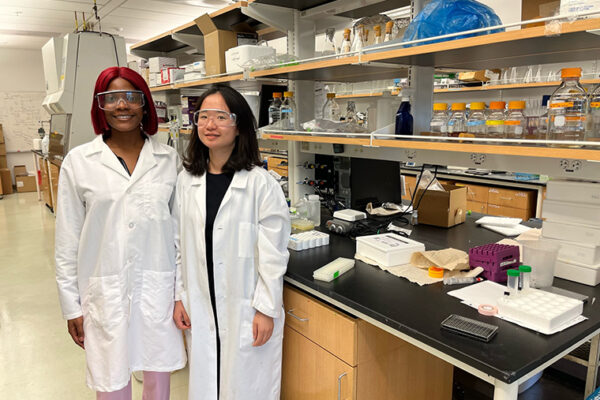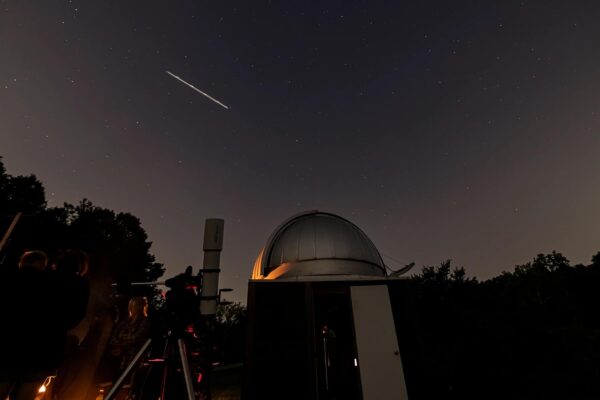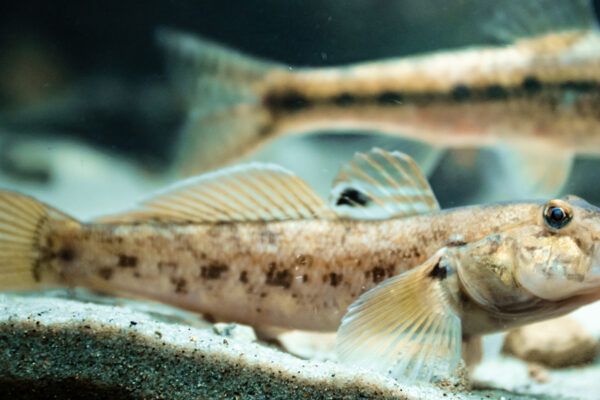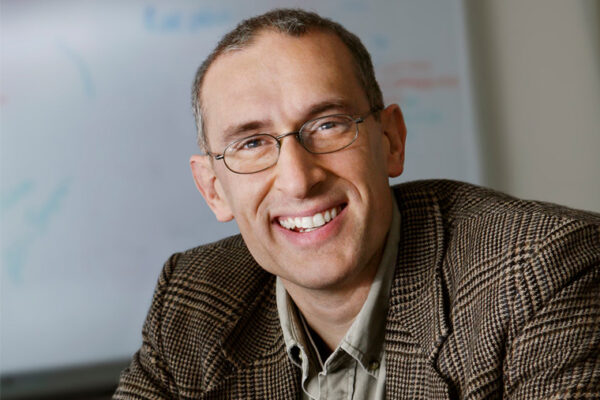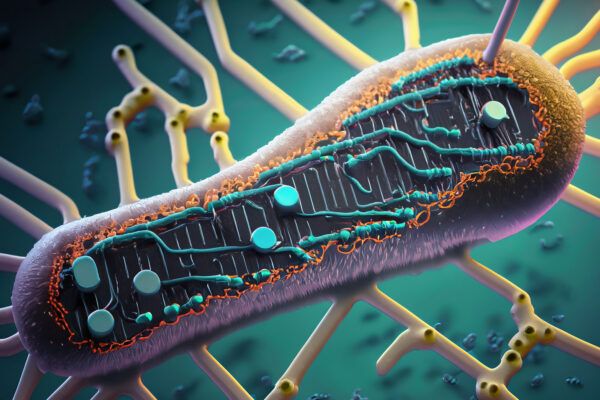WashU students contribute to biomanufacturing in space
WashU engineers visited Kennedy Space Center to report research progress and to understand testing capabilities for alternative feedstocks in biomanufacturing.
Flawed diamonds
Physicists in Arts & Sciences are gaining quantum insights from imperfect crystals. The research supported by the Center for Quantum Leaps advances the field of quantum simulation using an atomic-level quantum system.
Tyson observatory is WashU’s dark sky site
Artificial light at night is making it more difficult to see the stars, especially in urban areas. The observatory at Tyson Research Center makes the most of its secluded location, offering a unique viewing experience.
Curving light in a record-setting way
A team led by scientists and engineers, including researchers from the McKelvey School of Engineering, has created a unique, record-setting material that can bend one infrared ray of light in two directions.
Using environmental DNA for fish monitoring
Kara Andres, a Living Earth Collaborative postdoctoral researcher, used eDNA to follow invisible trails of genetic information from fish. While her original study probed the Great Lakes, her recent work is focused on microbial communities in local waterways.
Chen and Yuan win NSF grant to simulate pulsars at WashU
Alex Chen and Yajie Yuan, both assistant professors of physics in Arts & Sciences, have received a $447,000 grant from the National Science Foundation to create a unified model of pulsars, rapidly rotating neutron stars that release mysterious pulses of electromagnetic radiation.
Genin elected to Society of Engineering Science board
Guy Genin, at the McKelvey School of Engineering, has been elected to serve a three-year term on the Society of Engineering Science board of directors. The society strengthens the interface between engineering, science and math.
Unveiling the hidden world of gene regulation
Researchers led by Fuzhong Zhang at the McKelvey School of Engineering developed a synthetic biology tool to comprehensively reveal gene regulatory networks in E. coli.
WashU leads new multi-omics production center for NIH research consortium
Multi-omics leverages the power of several different “omics” data types at once to build a detailed picture of factors that contribute to human health and disease. Under a $19.2 million grant award, Gary Patti, in Arts & Sciences, and Ting Wang, at the School of Medicine, will manage a new hub for multi-omics analyses at Washington University.
Boyd receives ASME early career leadership award
Emily Boyd, teaching professor in the Department of Mechanical Engineering & Materials Science at the McKelvey School of Engineering, has been selected to receive the 2023 American Society of Mechanical Engineers Lakshmi Singh Early Career Leadership Award.
View More Stories
